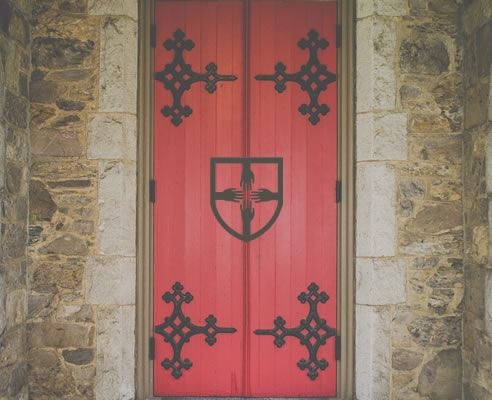By the Grace of God and through 12-Step programs and fellowship, I am in recovery.
One morning I got a call from Tina, a friend of mine whom I had met at church when we were both young brides in South Carolina. She started with, “I was thinking about our conversation of last night…”
My heart sank. I had no memory of having spoken with anyone the night before. Apparently, I had talked about my family of origin, problems with accepting myself for who I was, and the overall melancholy I harbored despite being a “believer” and church-goer.
“I’m going to send you some things that I think will help you,” said Tina, who was a mental health counselor. I wonder if she knew that the bundle of typewritten sheets, pamphlets and books she sent me would change my life forever.
What she sent was information about the disease of alcoholism.
I was overwhelmed. I recognized myself. I was not alone. I felt a glimmer of hope.
The only way I knew how to celebrate was by drinking, so I did. I downed one after another until I could feel no pain…or joy, or hope.
After a few days, I realized maybe I should taper down on my drinking. Not because I was an alcoholic, for goodness sake, but because I diagnosed alcoholism in other members of my family. I told my brother my plan and Peter said, “Oh Chrissie, don’t stop all at once. You drink so much; it would kill you if you went cold turkey.”
A few days later, I called a rehab facility at four in the afternoon and told the intake worker I would like to come for the two-week program for children of alcoholics. As part of the screening, she asked me when I had had my last drink and I looked down at my hand. “Well, I’m having a gin and tonic right now,” I said, “but that’s not the problem…I can control it...it’s my family…” She suggested that I should perhaps come in for three weeks for the treatment of my own alcoholism. I heartily disagreed and hung up. Outraged, I called my sister and told her about the conversation. She said quietly, “I agree with her, Chrissie.” I swore at her and slammed the phone down.
How could I be an alcoholic? I was a well-educated woman, a teacher, the mother of beautiful children. I sang in the choir and was a lay reader at church. I never drank Scotch. I only drank my wine out of crystal stemmed glasses.
I started going to ACOA and then Al-Anon meetings, never discussing my own drinking with anyone. Then I read an essay written by Jefferson Airplane’s Gracie Slick in Courage to Change: Personal Conversations with Dennis Wholey. In it she said if you could go three months without a drink, you were probably not an alcoholic. Tapering off so I wouldn’t die as my brother forewarned me, I stopped drinking to prove to the world that I was not an alcoholic.
Since I was a teacher, I decided to go to the three-week Rutgers Summer School for Alcohol Studies to learn more about the disease that affected so much of American society, and undoubtedly was the cause of some of my students’ behavior problems.
During the second week I was there, I arrived at my 89th day without a drink. I was at the Jersey shore with six of my new friends, all alcoholics in recovery. The sky was blue. The sand was warm under my toes. The sun sparkled on the water. Gulls called to each other. Sailboats drifted by in the distance. There had never been a more perfect day.
And I started to cry. To sob. To shake.
My friends formed a circle around me, asking me what was wrong and offering comfort. I stammered, “To-to-tomorrow will be 90 days since I’ve had a drink…so I’ve done what Gracie Slick said and I’ve proven I’m not an alcoholic.”
And one of them said, “Congratulations, why are you crying?”
I wailed, “Because the only way I know how to celebrate is by having a drink.”
And another friend said, “Well, what do you have to do then?”
I said, “I have to say it…I have to admit it. My name is Christine and…I am an alcoholic.”
And they encircled me and hugged me and jumped up and down for joy with me. We left the beach and went to the nearest diner and ordered coffee and pie. And they in turn told me their stories. I was at my first meeting. I have not been without joy and hope since.
And, by the grace of God, I have not had a drink or drug since April 10, 1985.
-Christine H.
 In the early days of the Church, when the front door of the parish was painted red it was said to signify sanctuary – that the ground beyond these doors was holy, and anyone who entered through them was safe from harm.
In the early days of the Church, when the front door of the parish was painted red it was said to signify sanctuary – that the ground beyond these doors was holy, and anyone who entered through them was safe from harm.